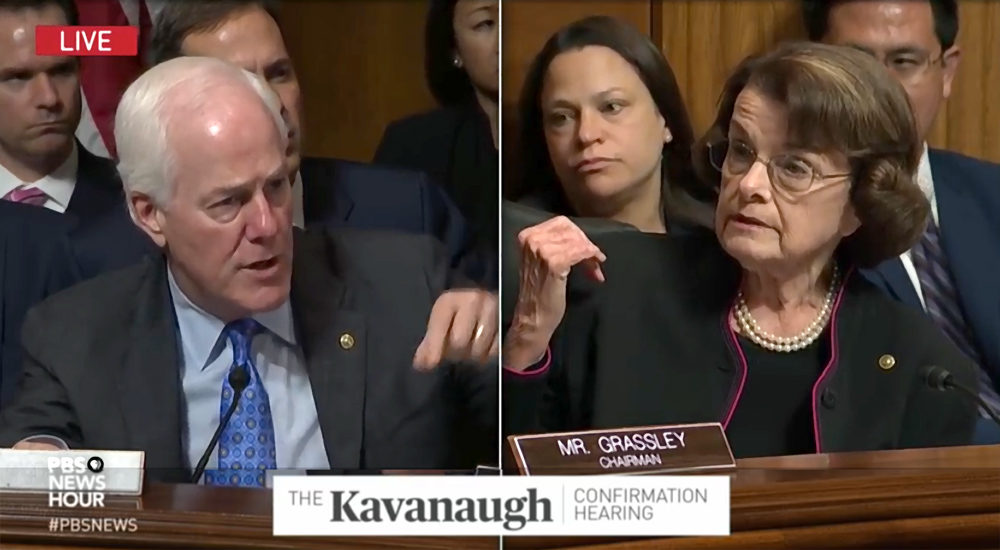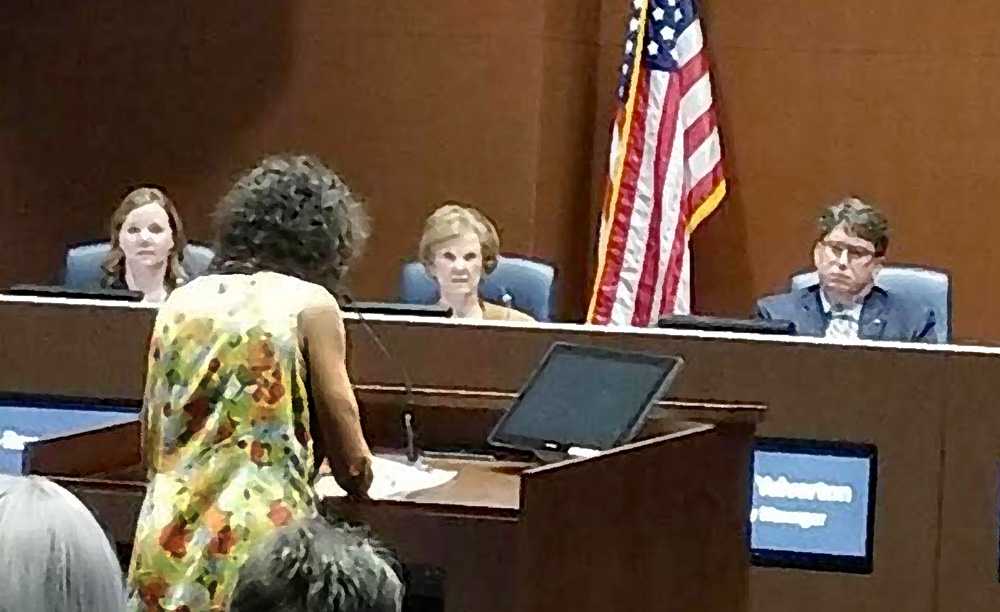So, who was lying, last week, at America’s big show trial — er, Senate Judiciary Committee hearing?
Professor Christine Blasey Ford or Judge Brett Kavanaugh?
Many Americans took sides. I cannot. Both said believable as well as scarcely believable things, but I’m with that minority who admits not to know what to believe.
Except for one thing: I am pretty sure I know who told the biggest whopper.
Senator Dianne Feinstein.
Democratic senators, especially Kamala Harris (D-Calif.), repeatedly pressured Kavanaugh to himself demand an FBI investigation to clear his name. It all seemed Orwellian: to make the accused insist on an investigation into allegations he had denied. It was also odd, considering, as Kavanaugh reminded his inquisitors, that he had repeatedly accepted any investigation the committee desired.
They just wanted him to demand it.
All of which is nuts, since the Committee possesses subpeona power, and can do an investigation itself.
But the weirdest aspect? The FBI had already checked Kavanaugh’s background, had performed an official investigation. But since Senator Feinstein had not tipped the agency off to Professor Ford’s confidential accusation — had effectively sat on the letter — the FBI hadn’t covered that precise avenue of inquiry.
And then, after the hearings were nearly over . . . the leak. And the bouhaha.
When asked whether she leaked Ford’s epistle, Feinstein said No. When asked if her staff did, she said she . . . hadn’t asked them.
Oh, come on.
Not as believable as either Ford or Kavanaugh.
This is Common Sense. I’m Paul Jacob.











